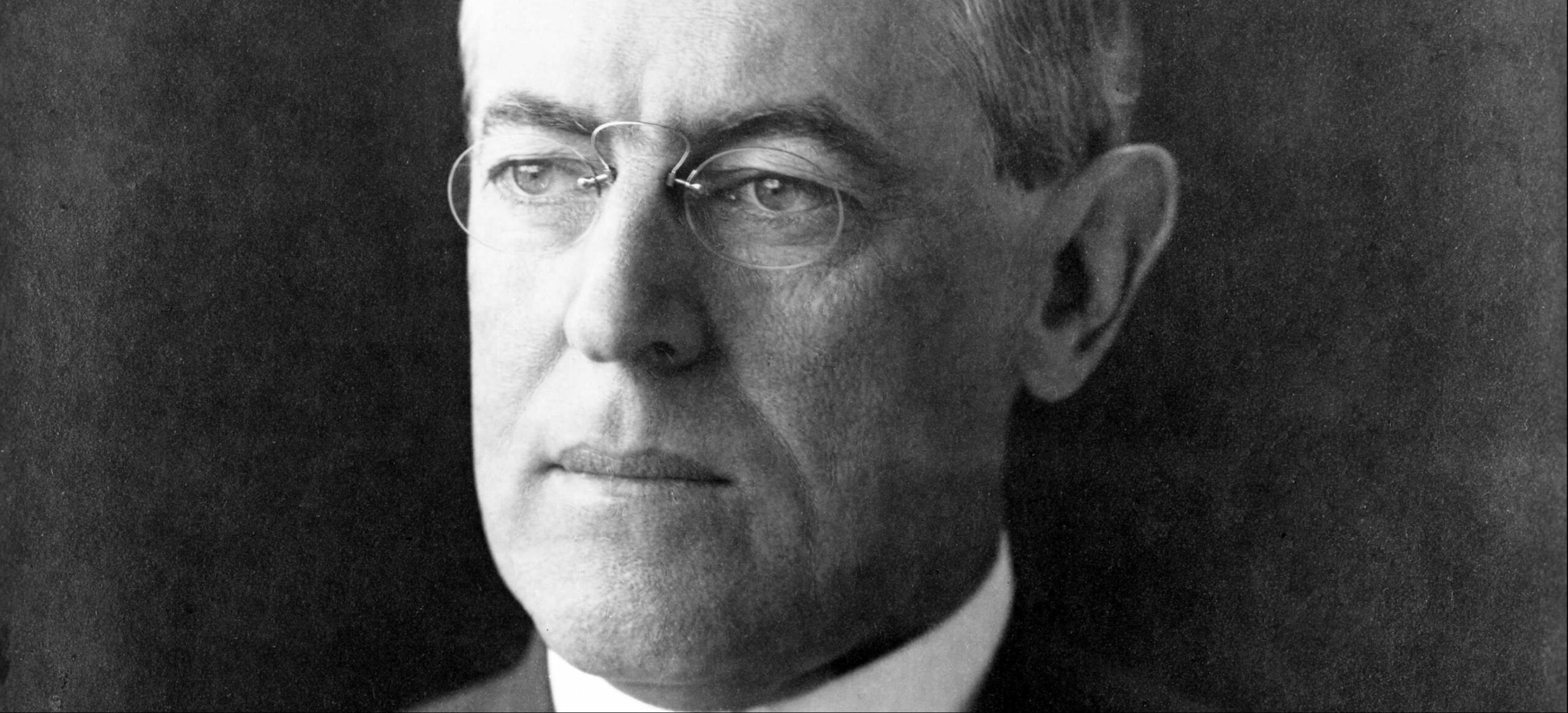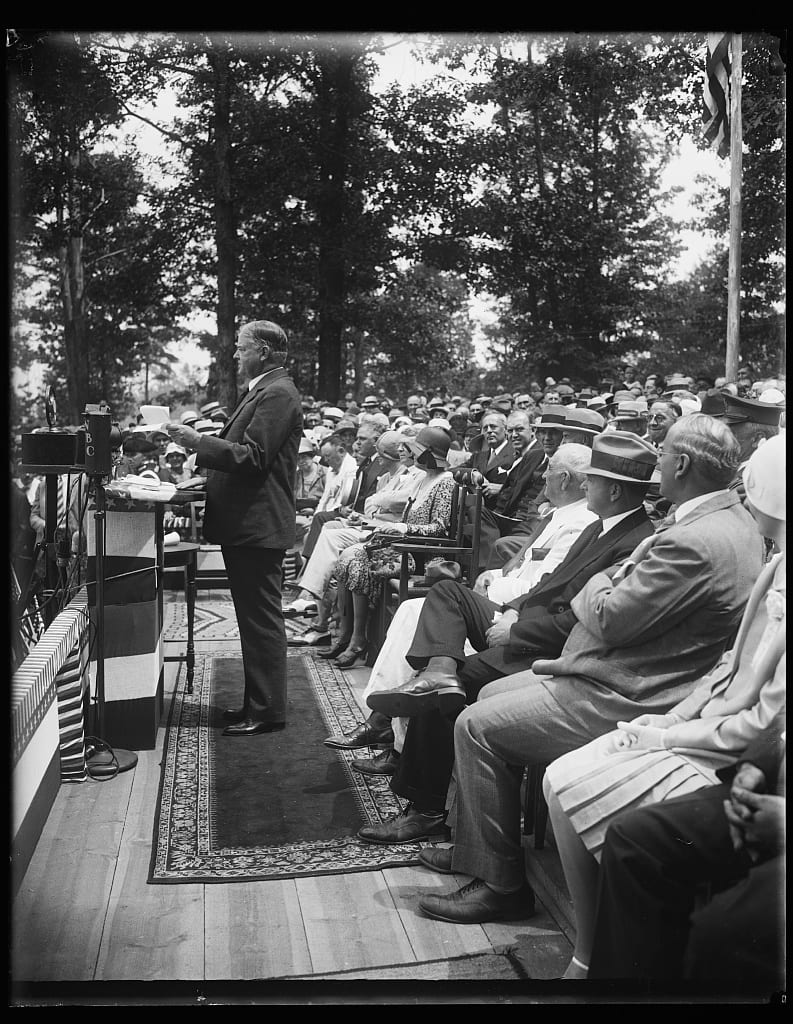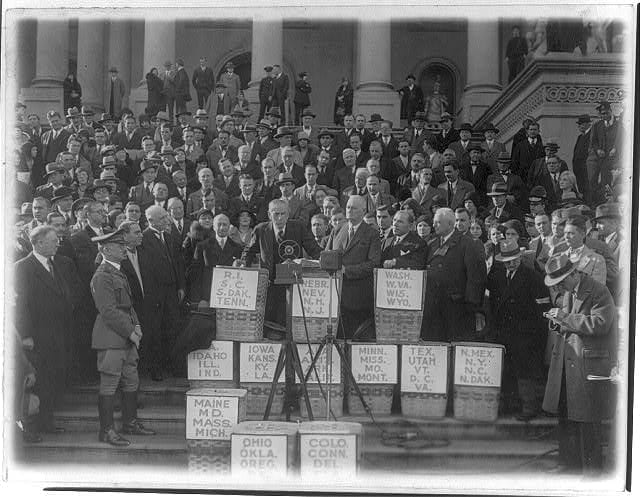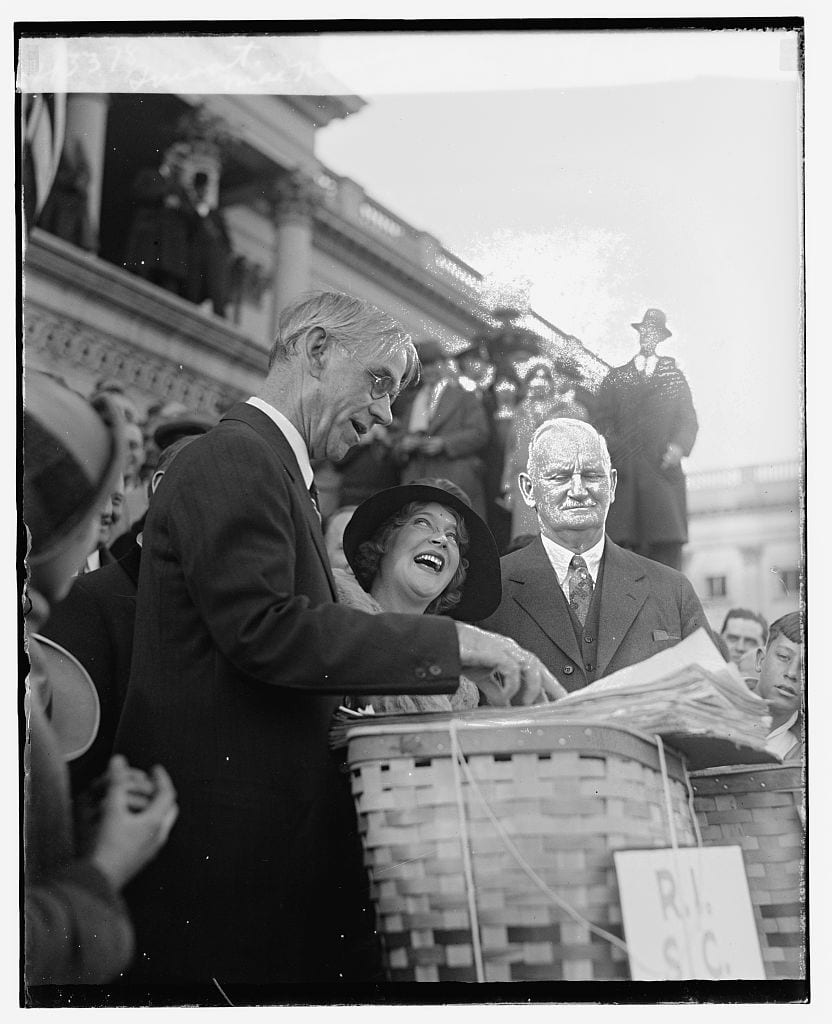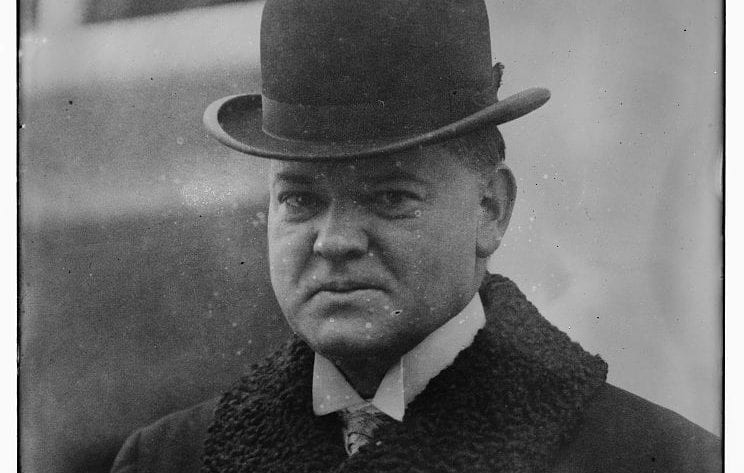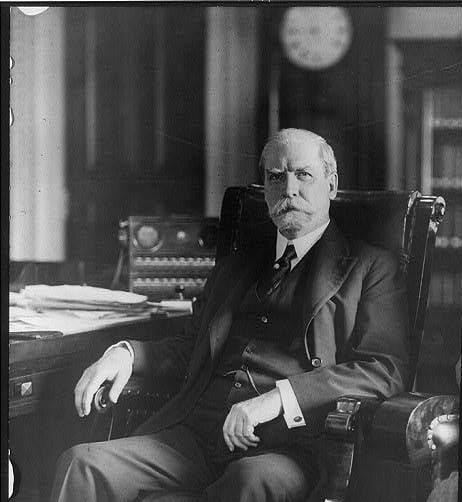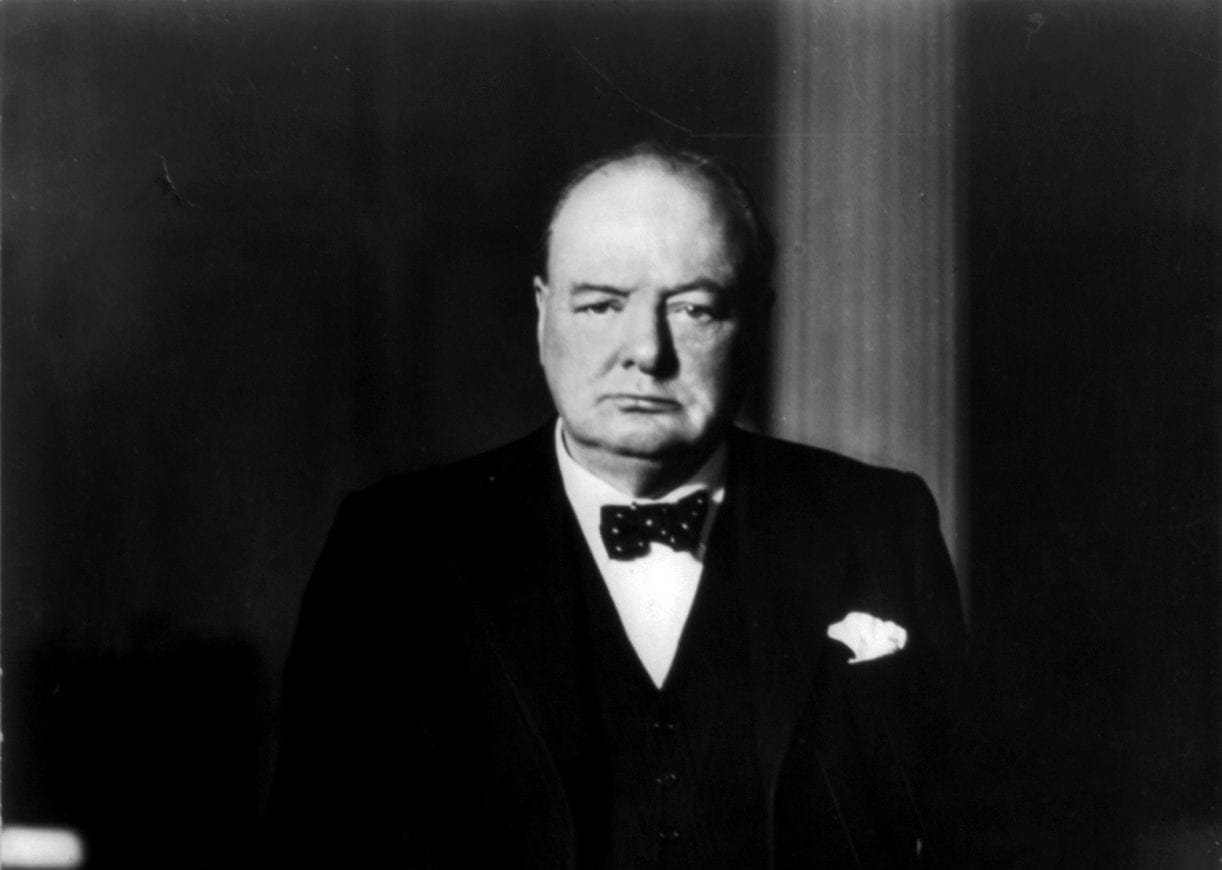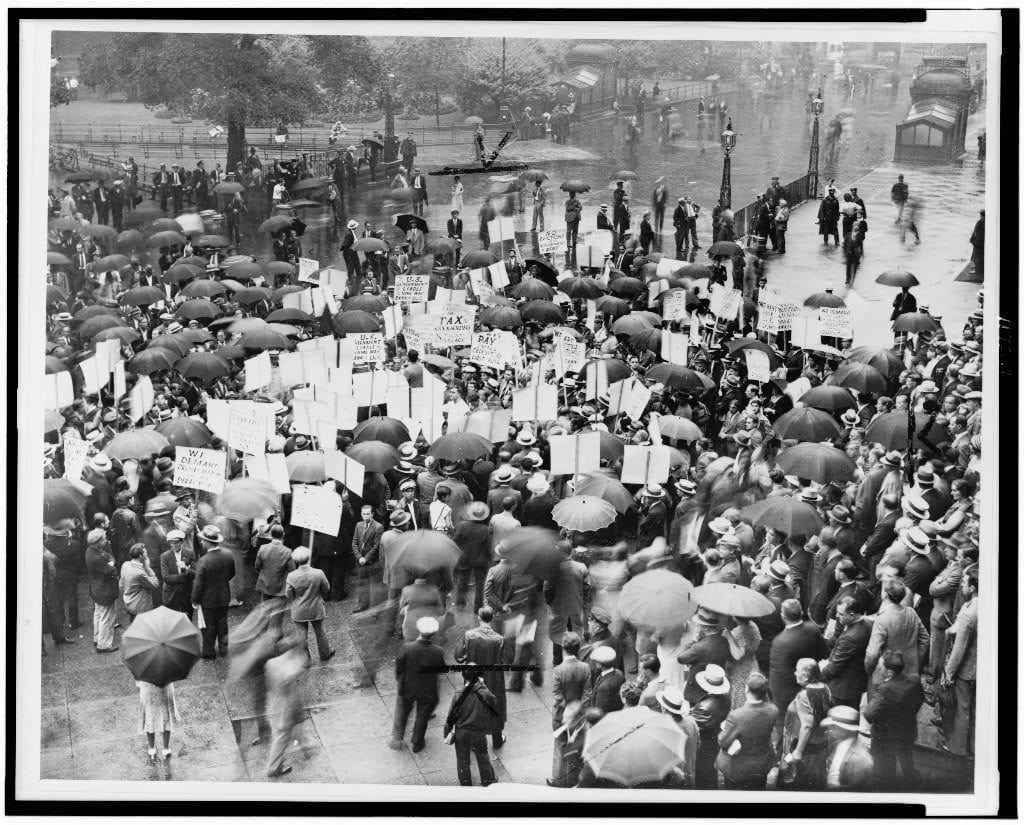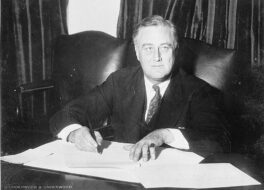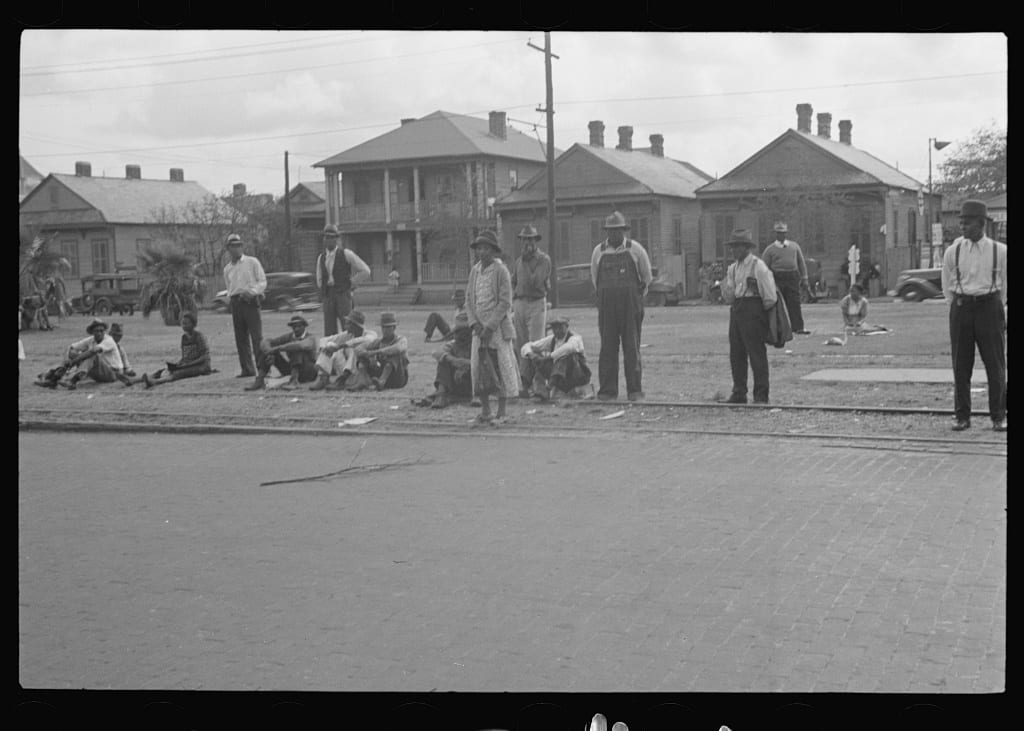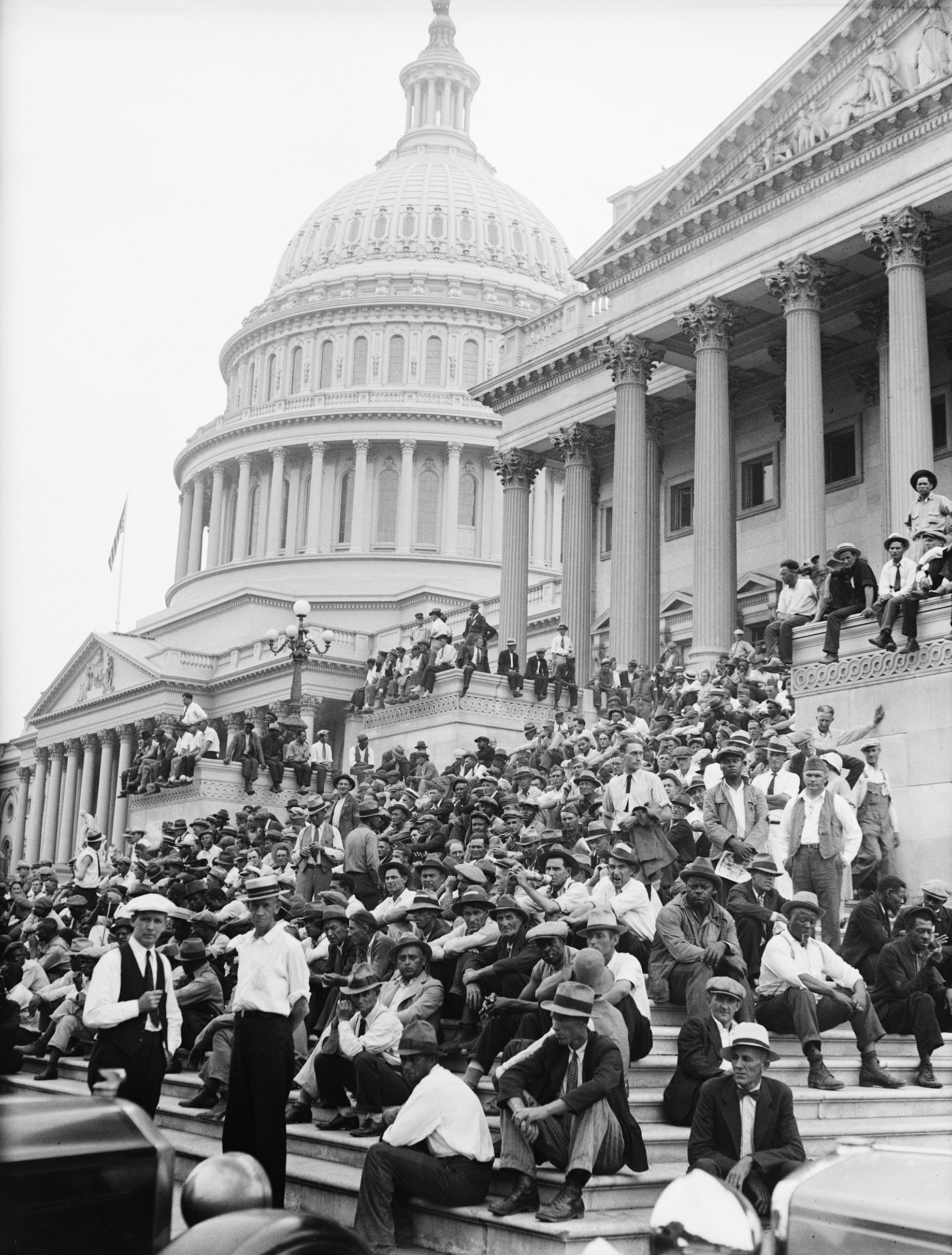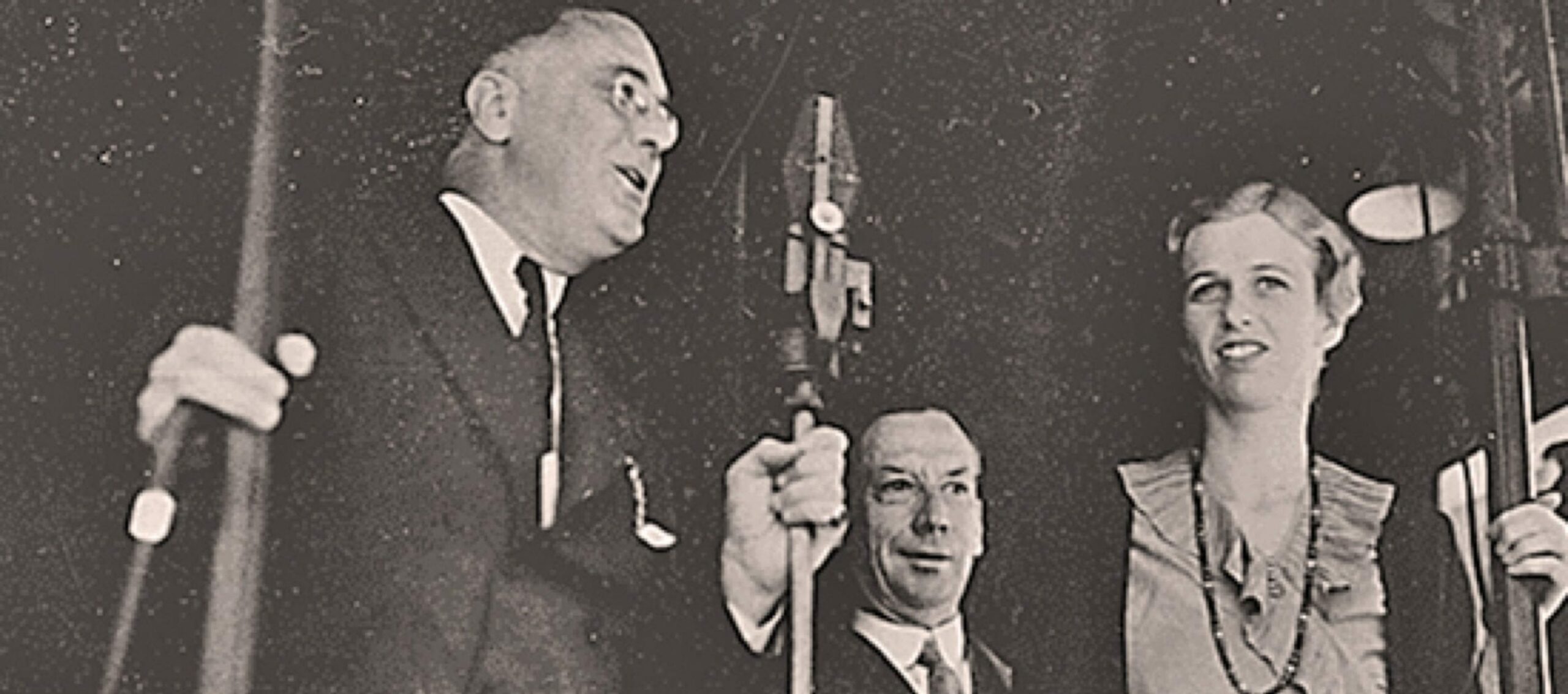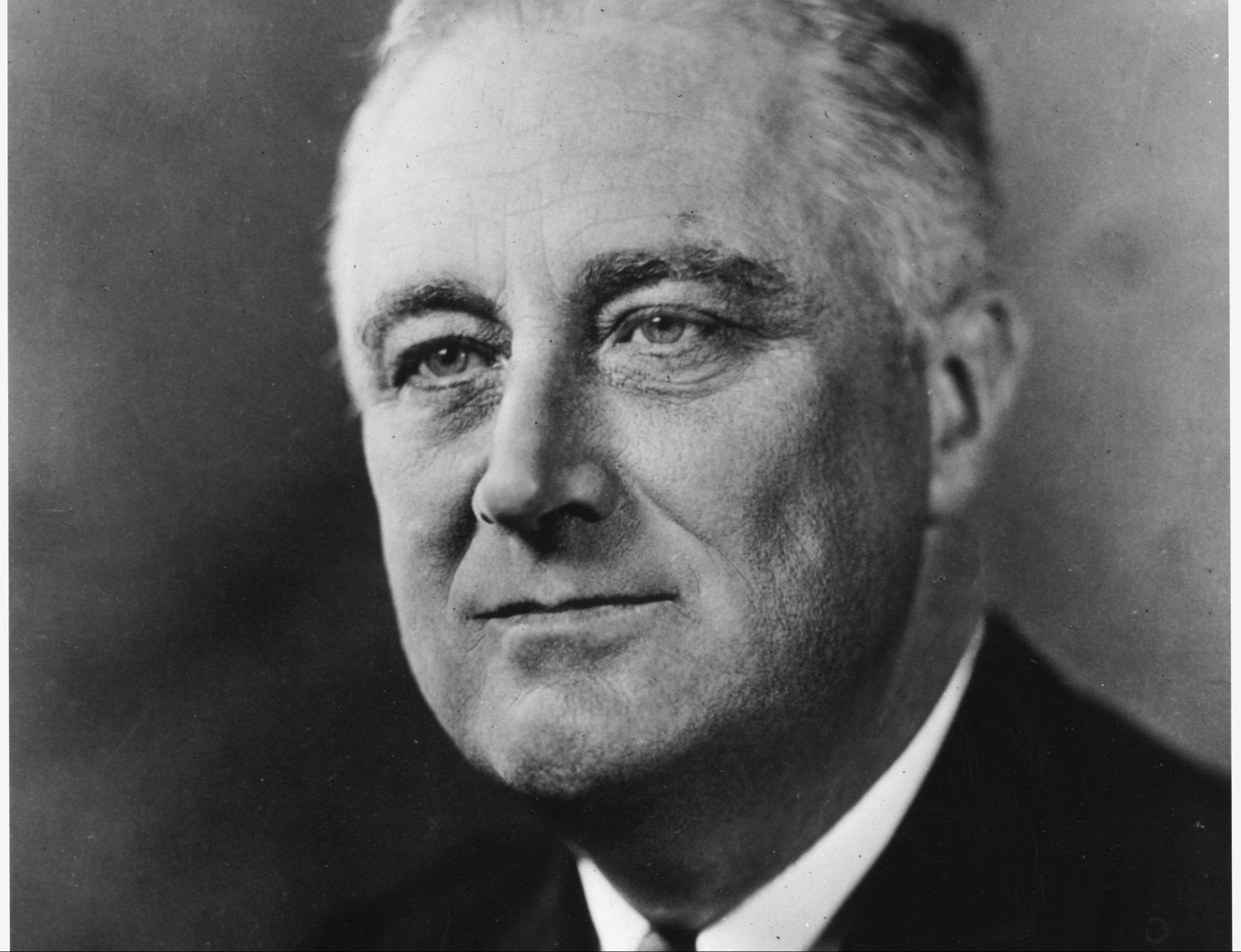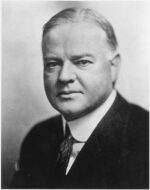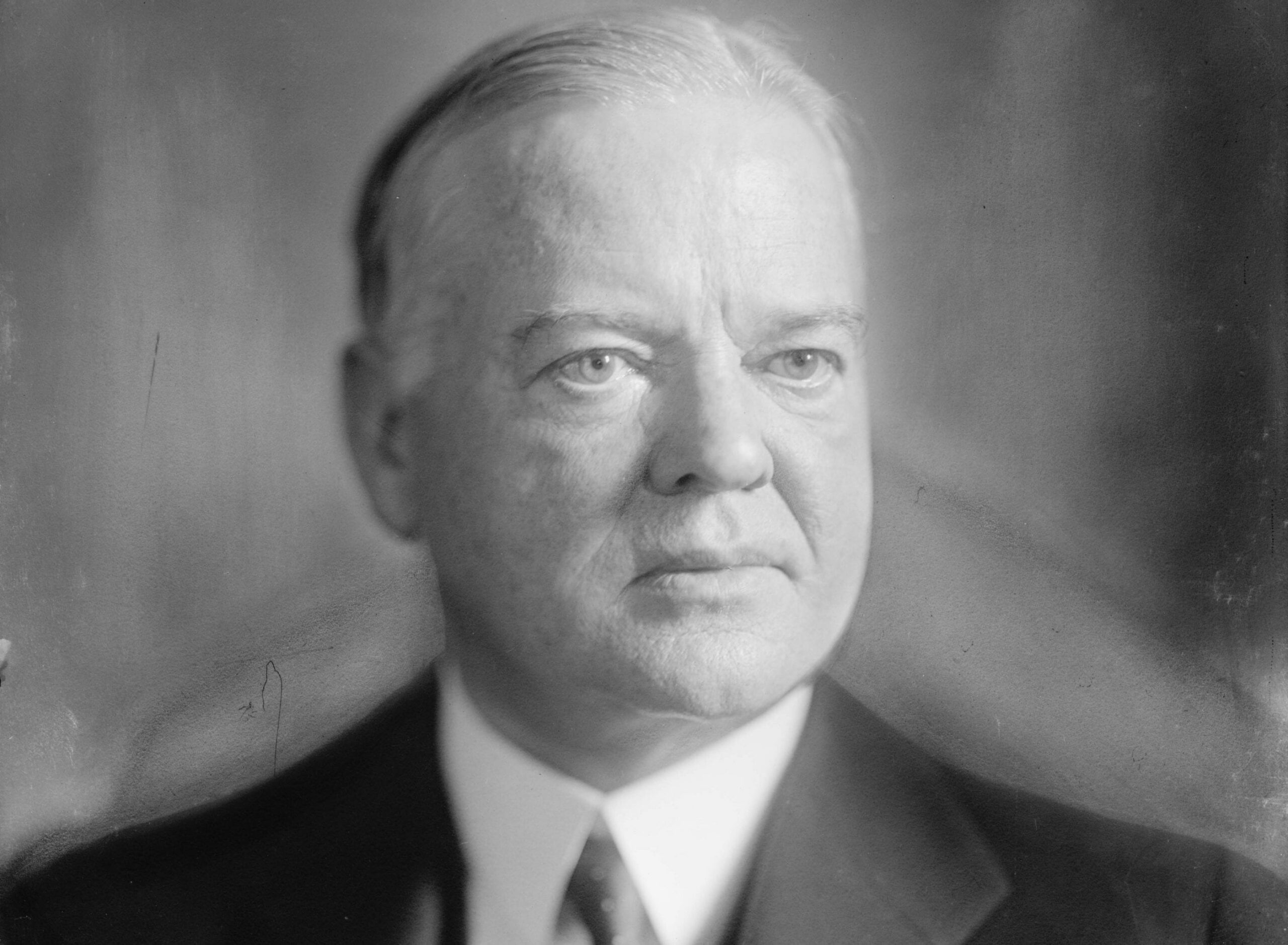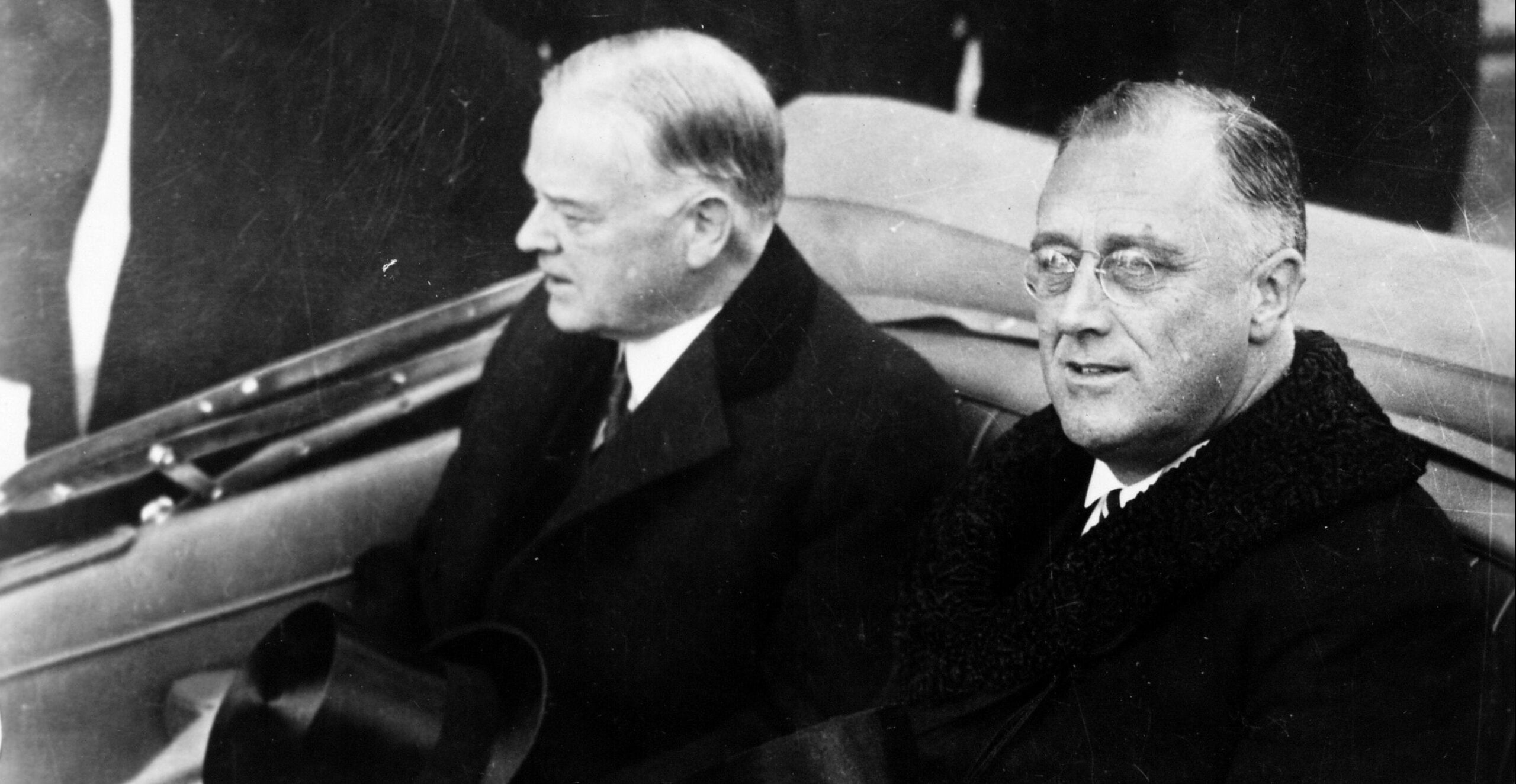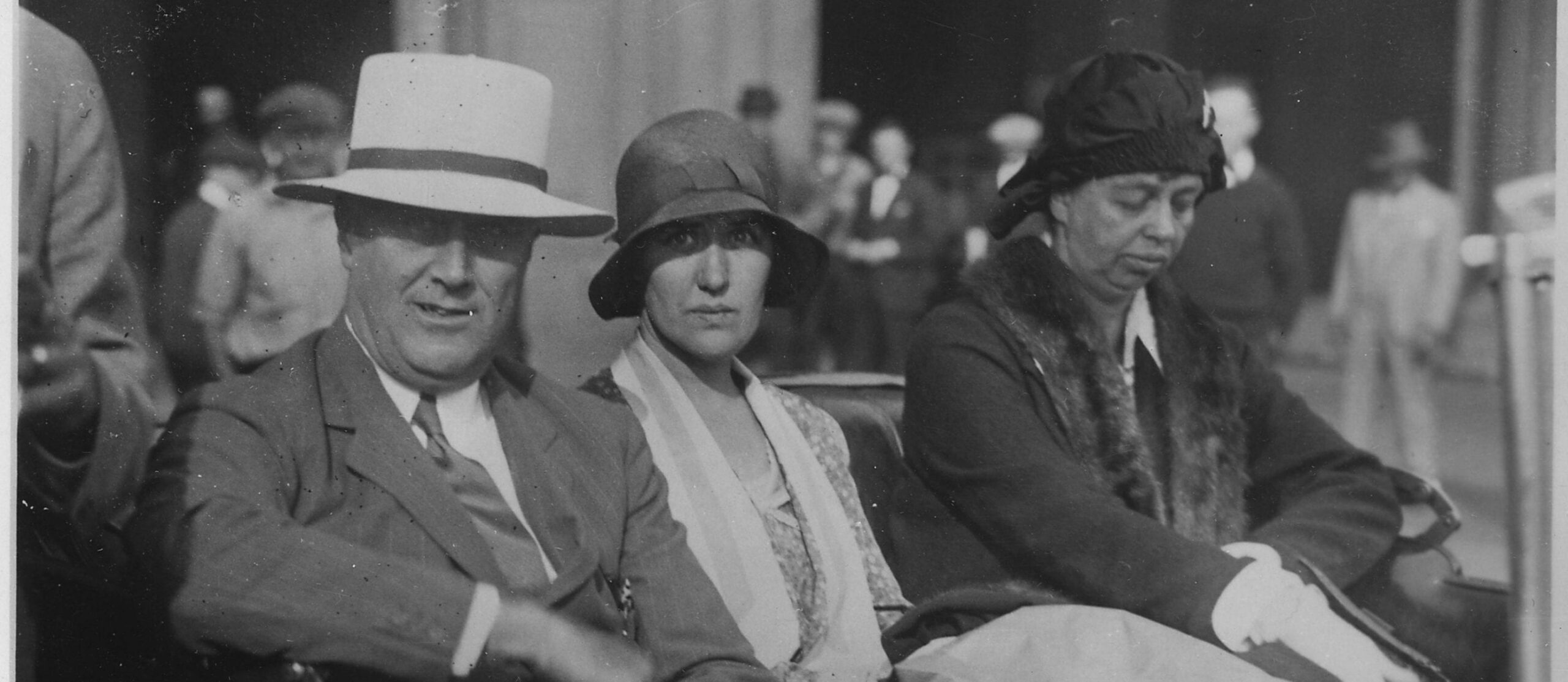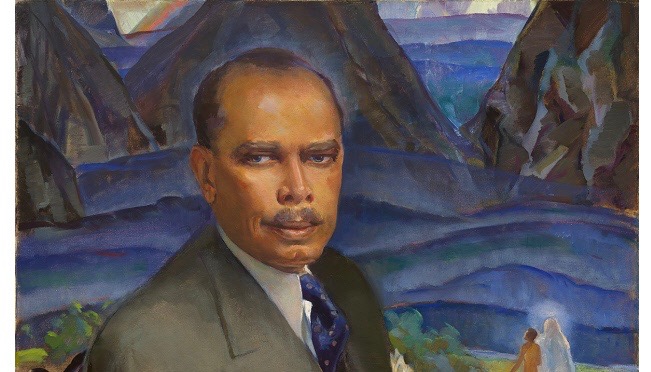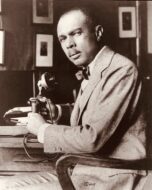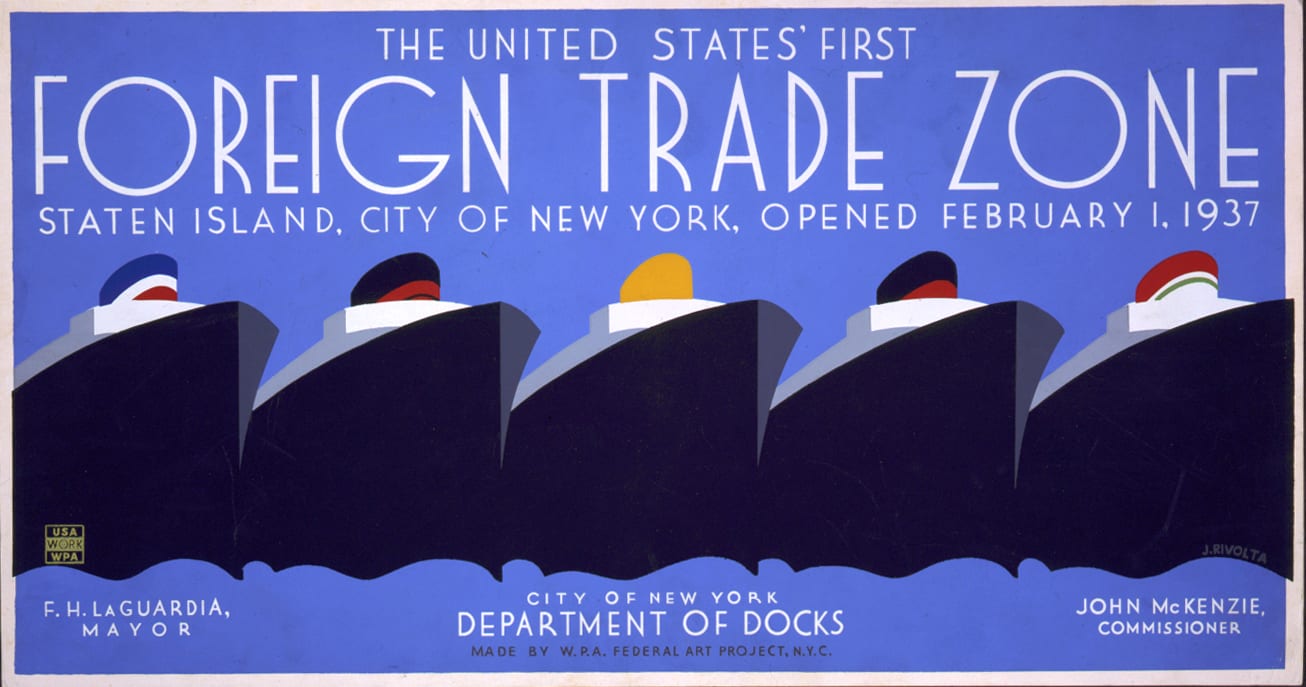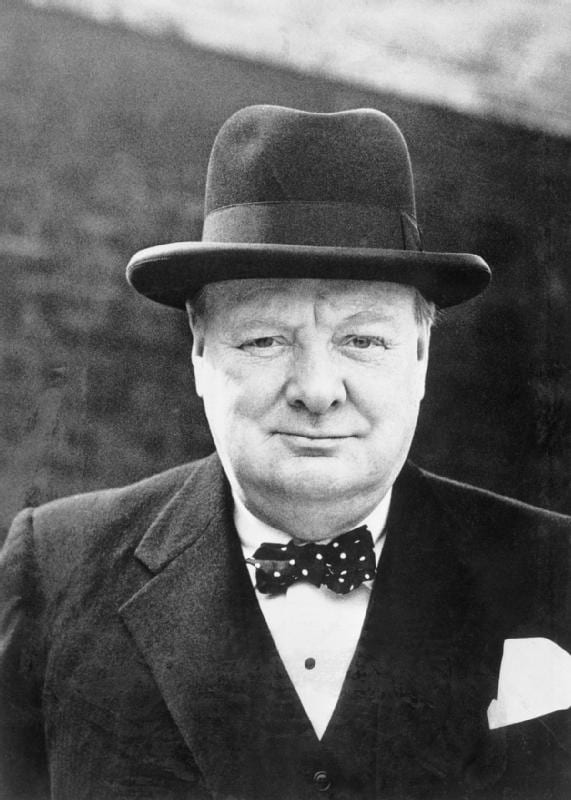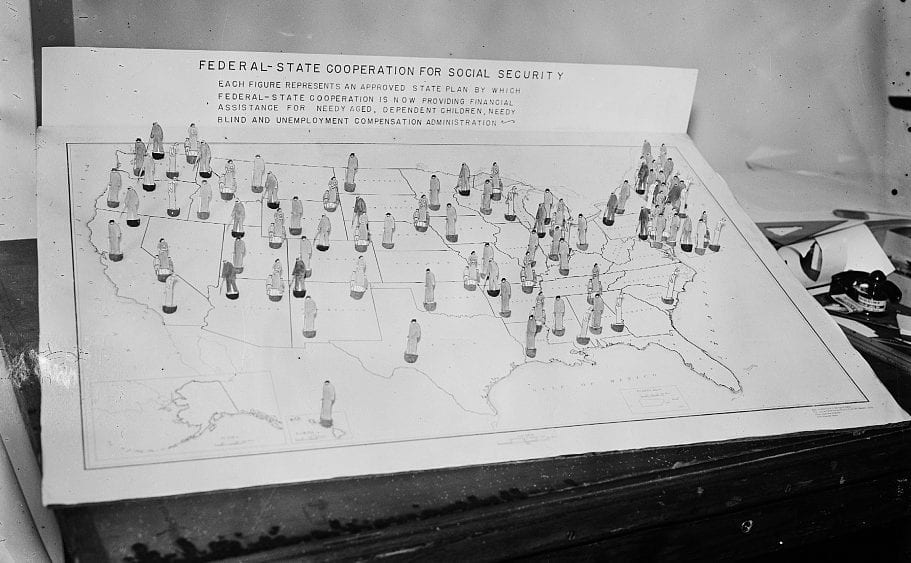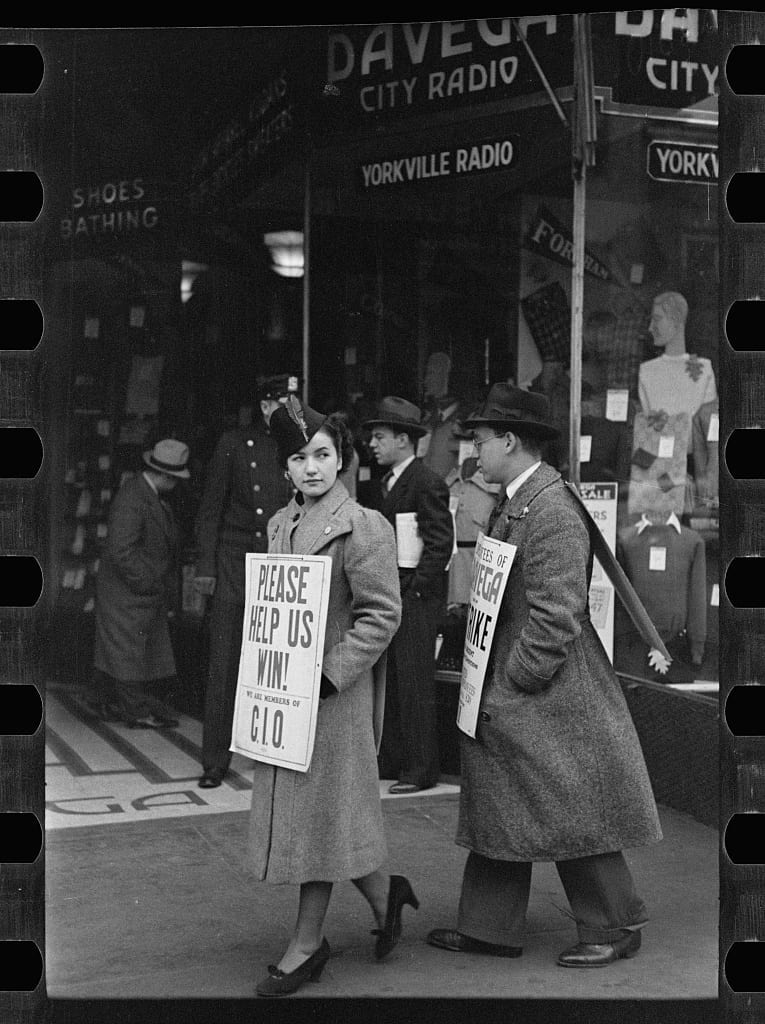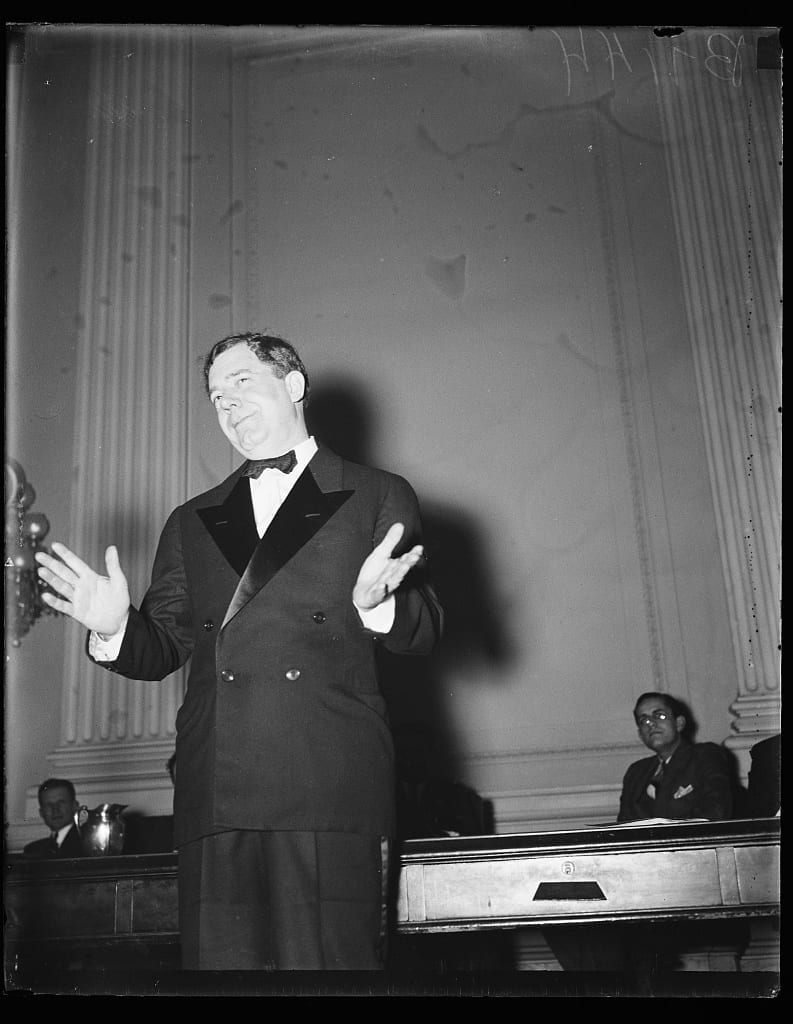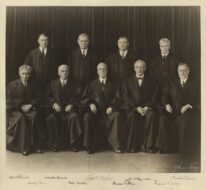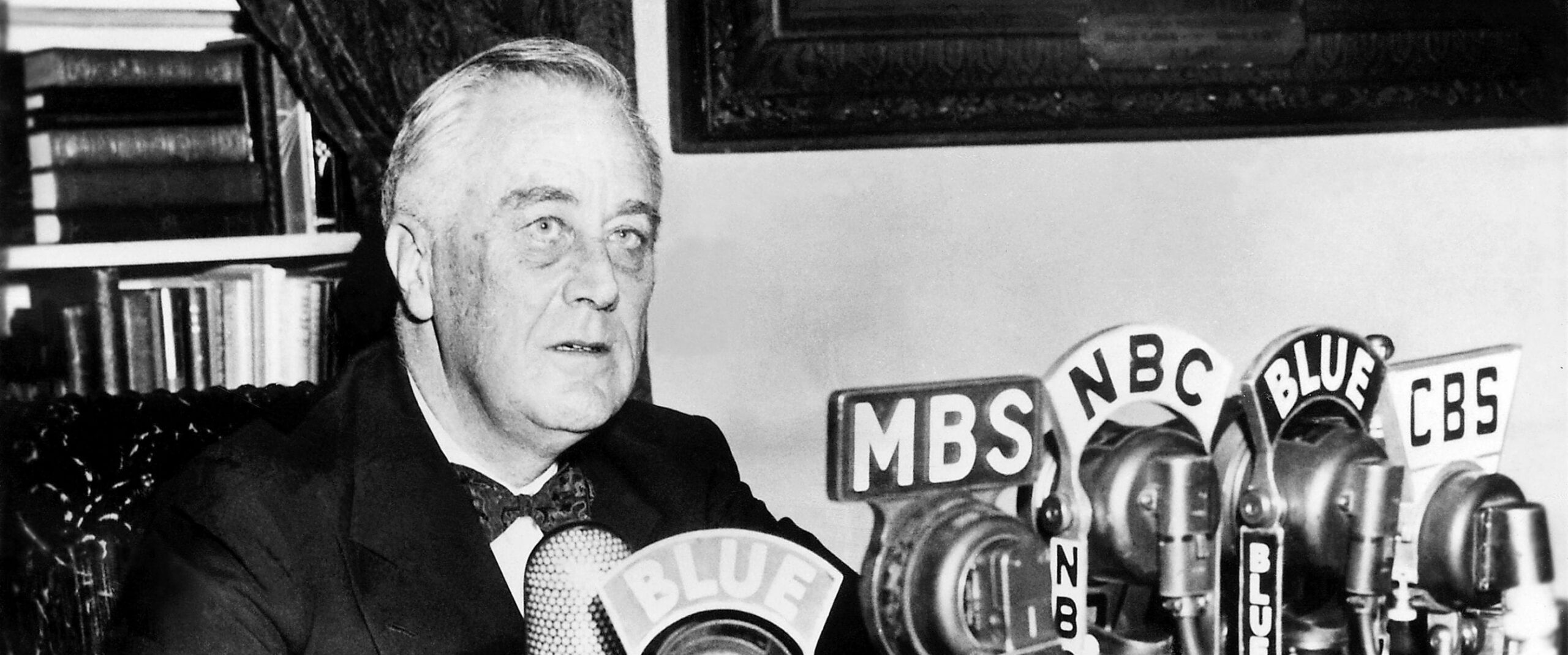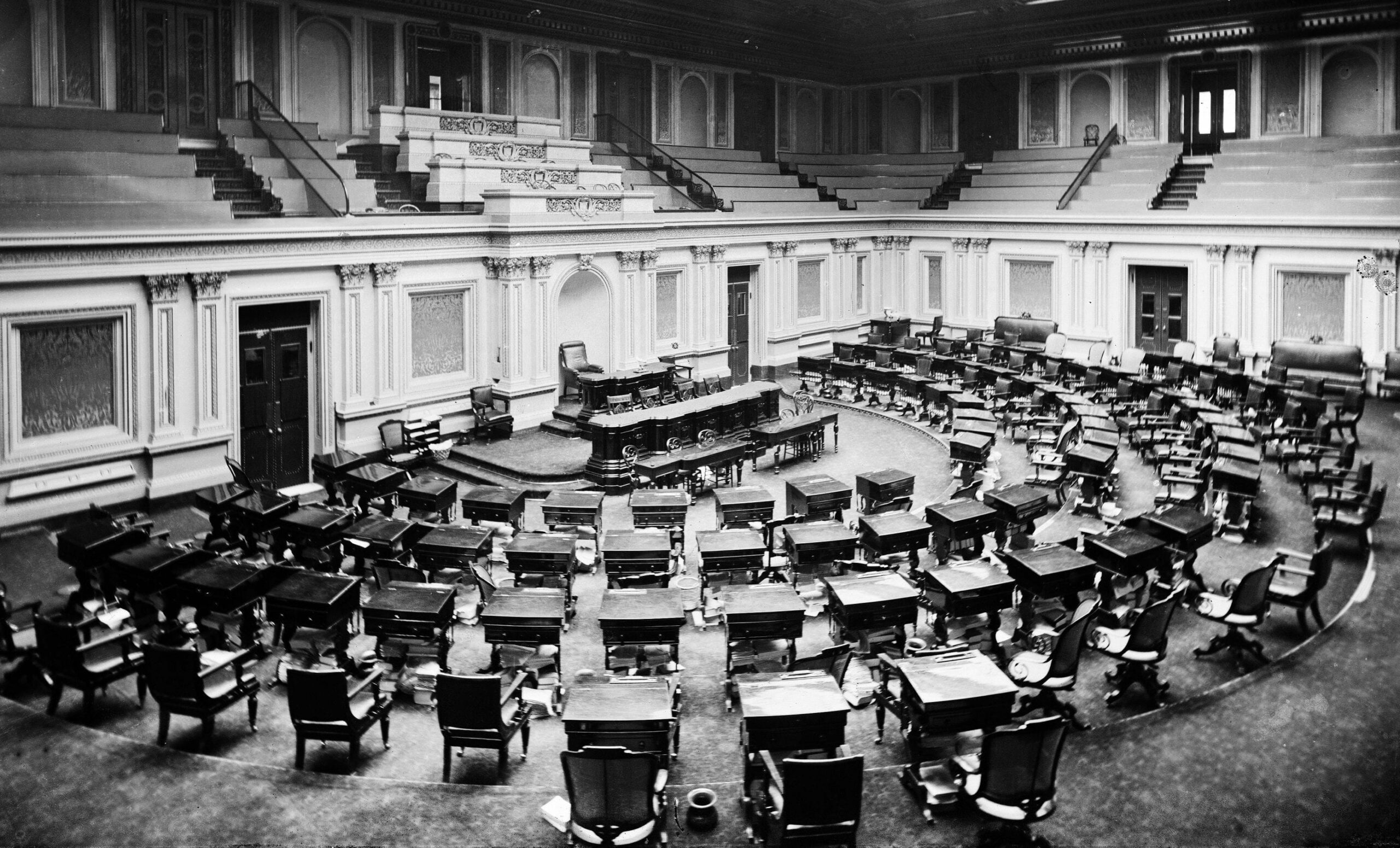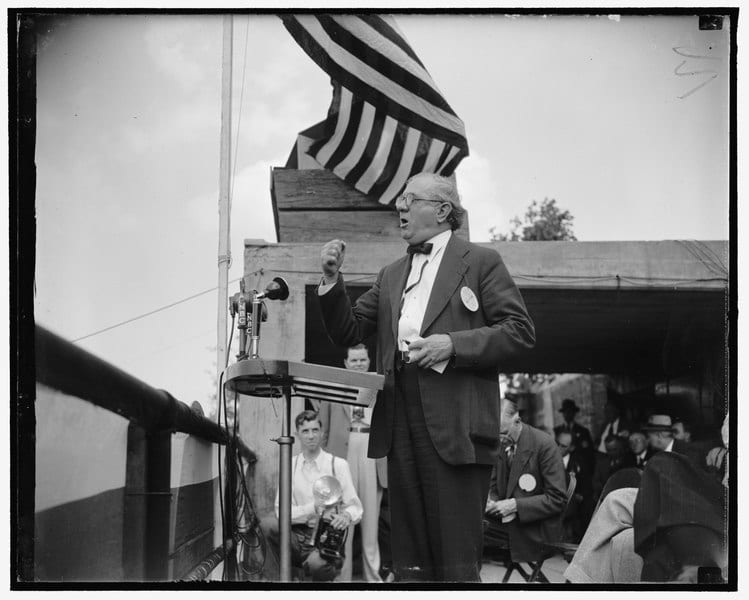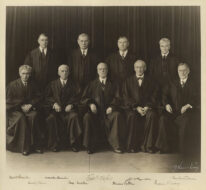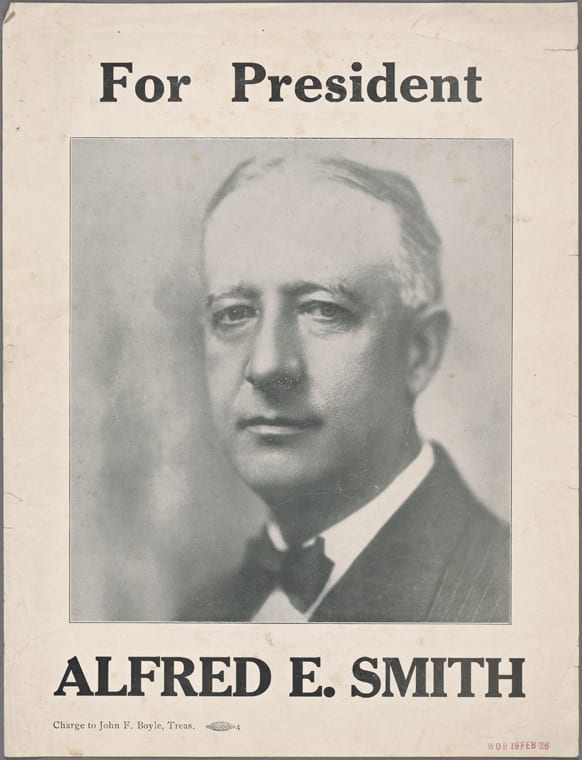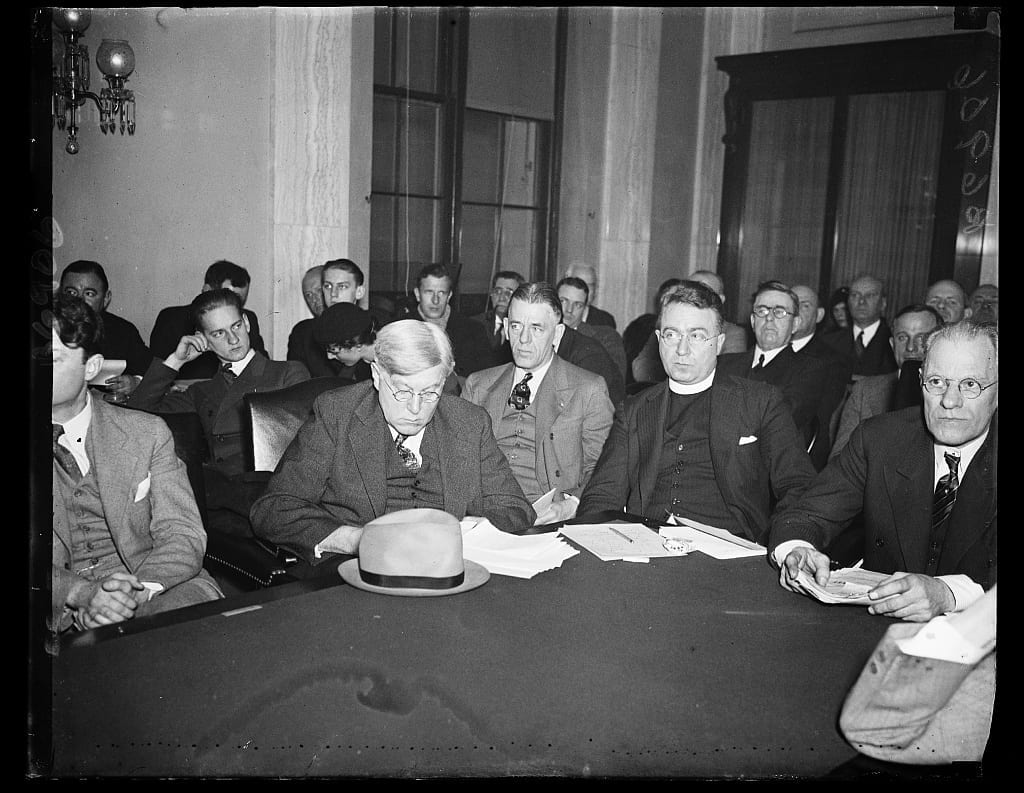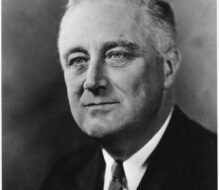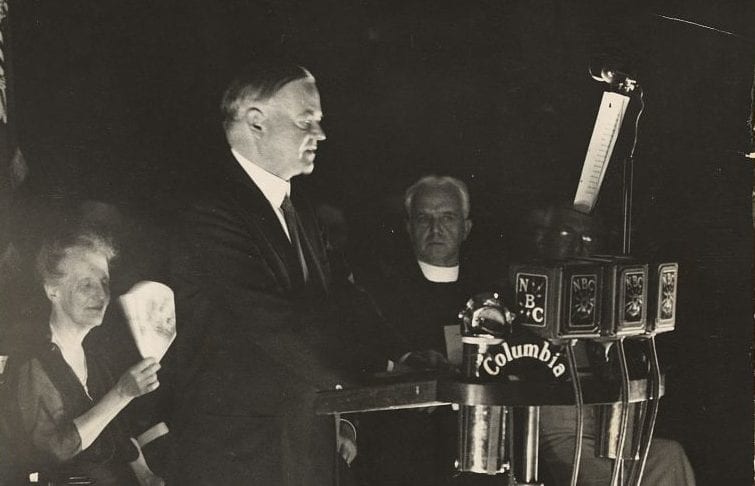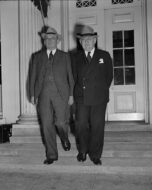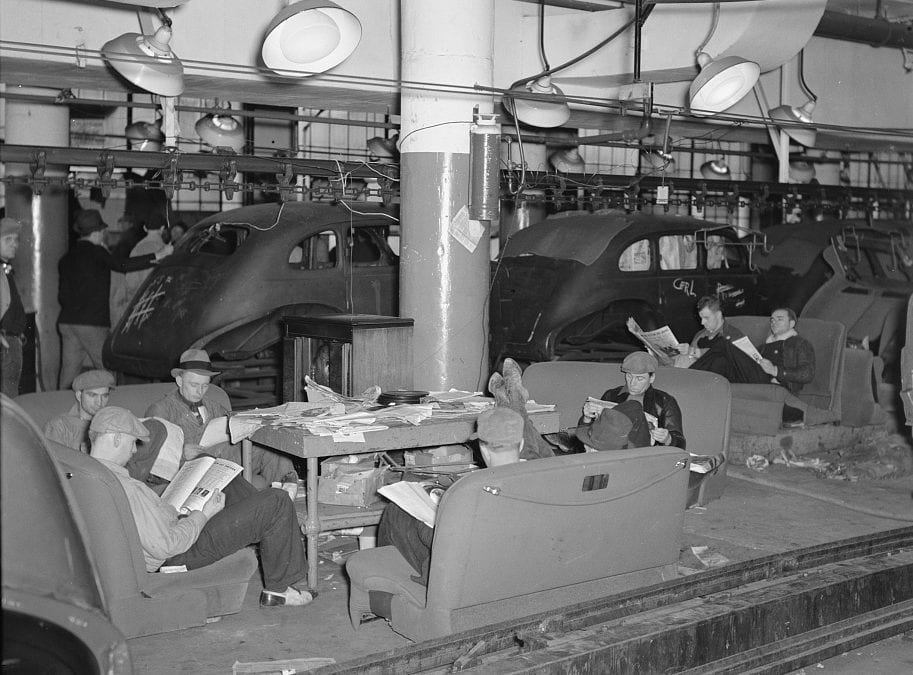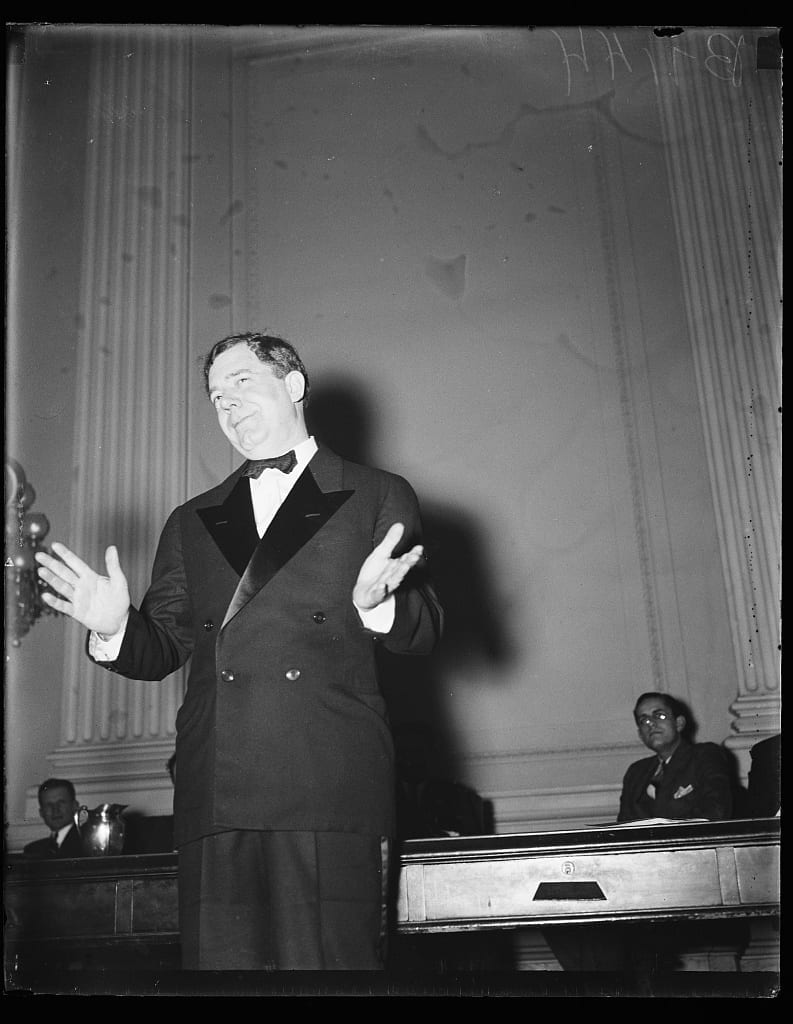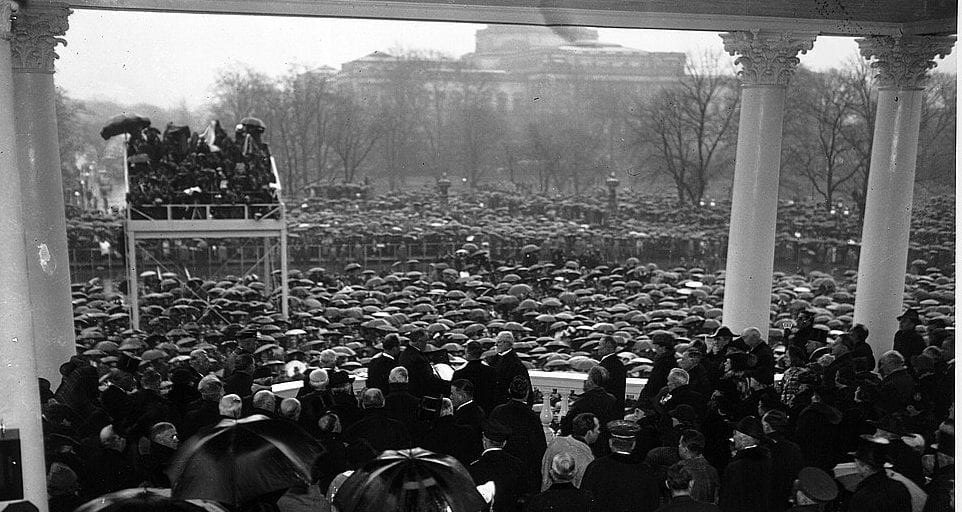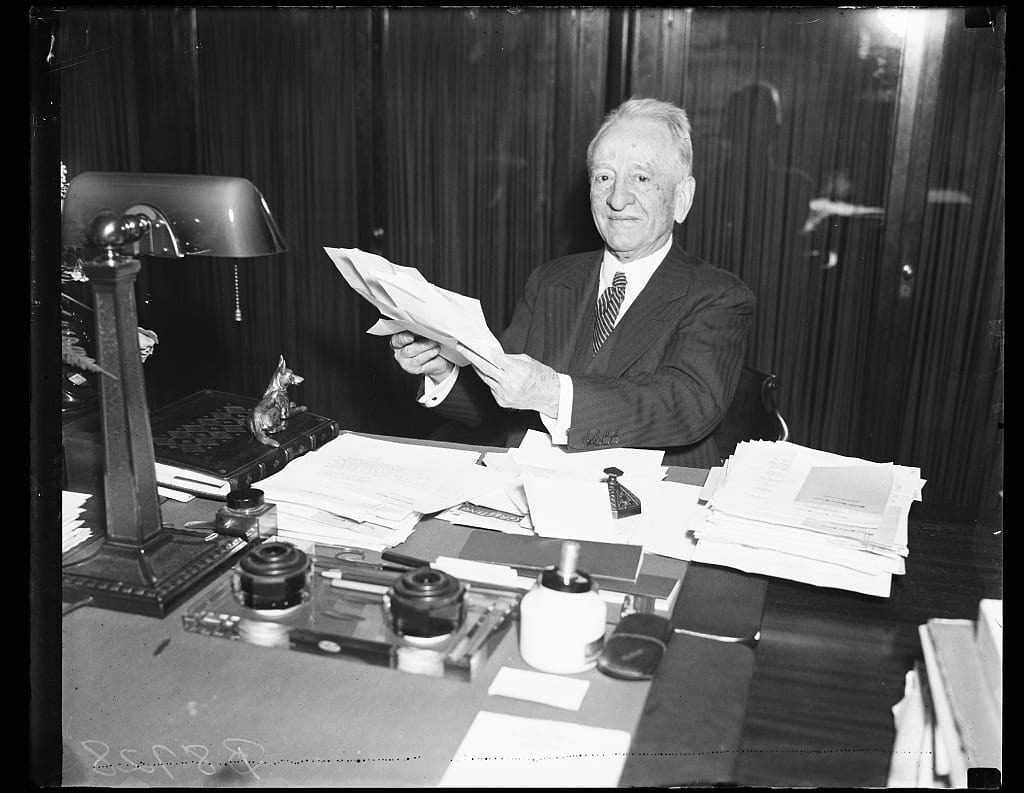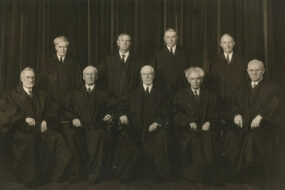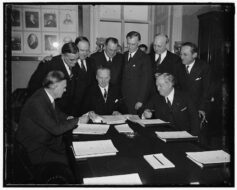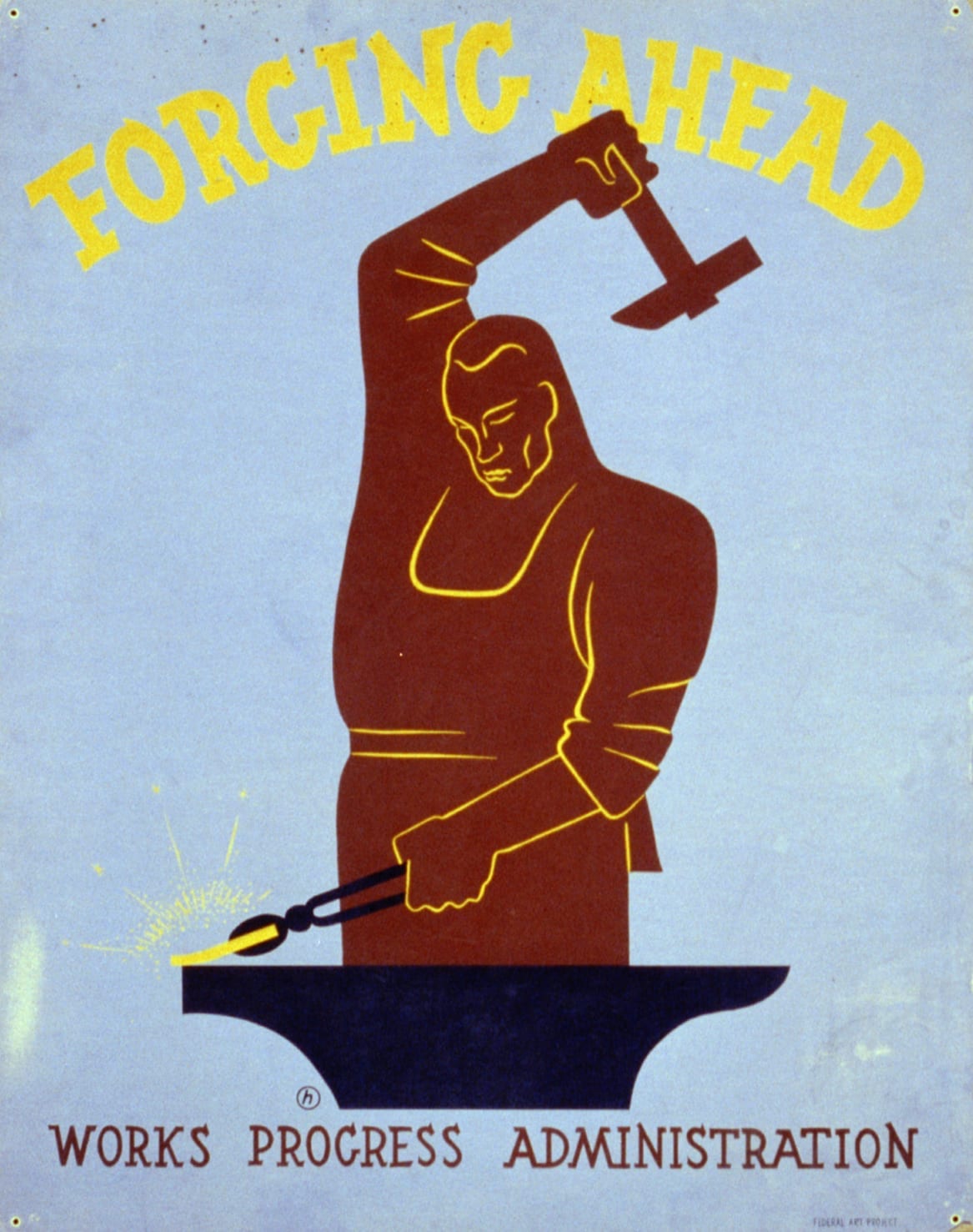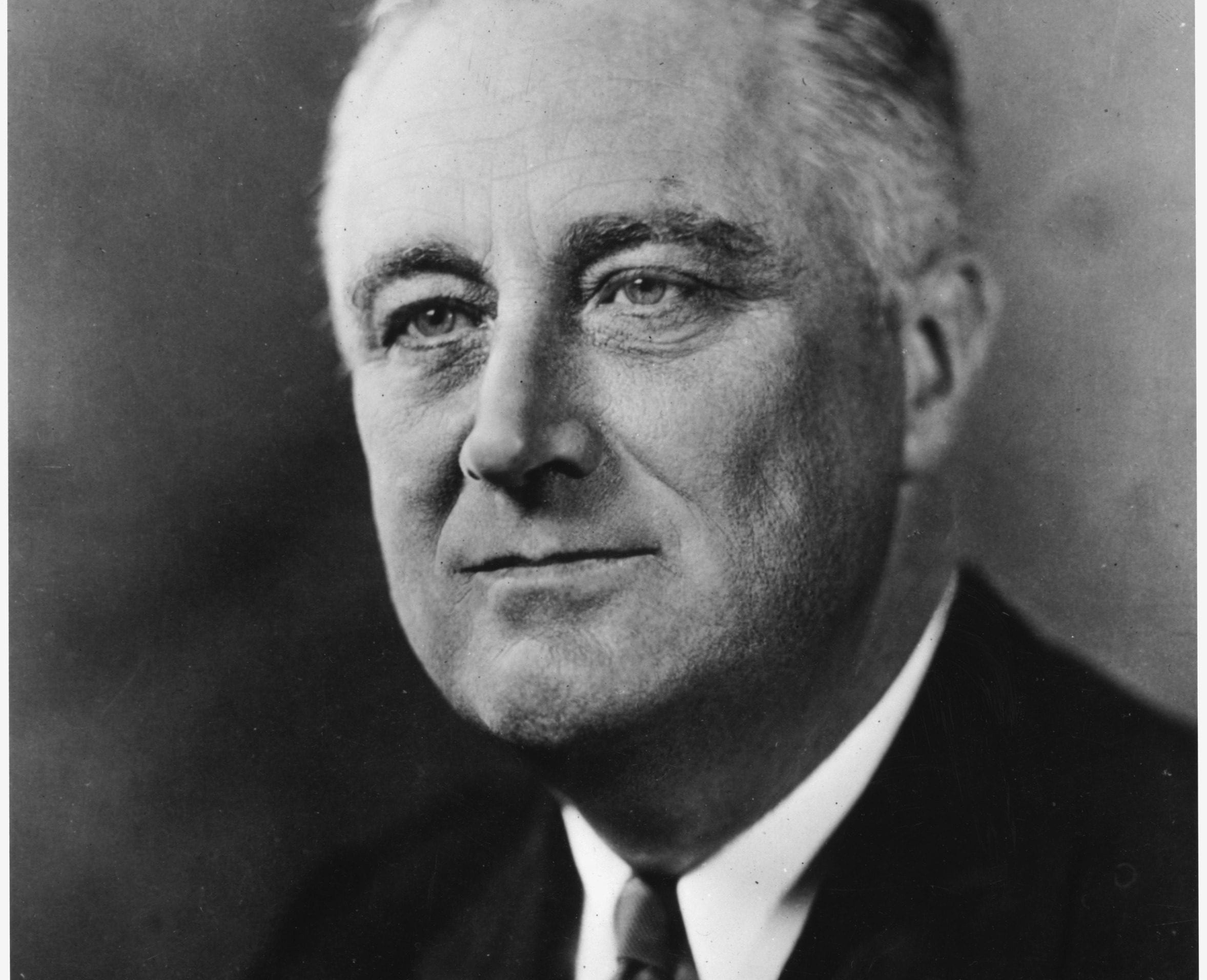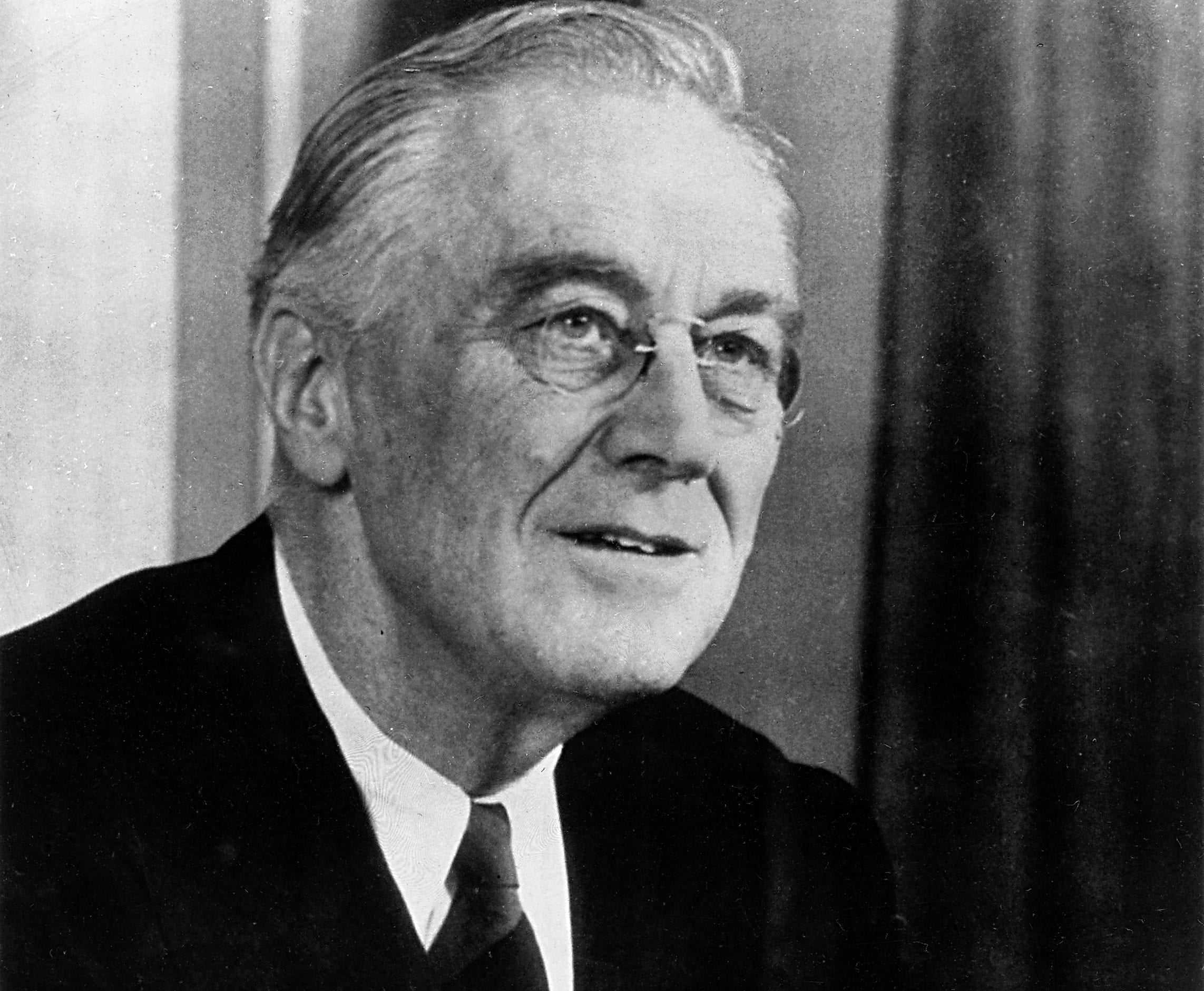

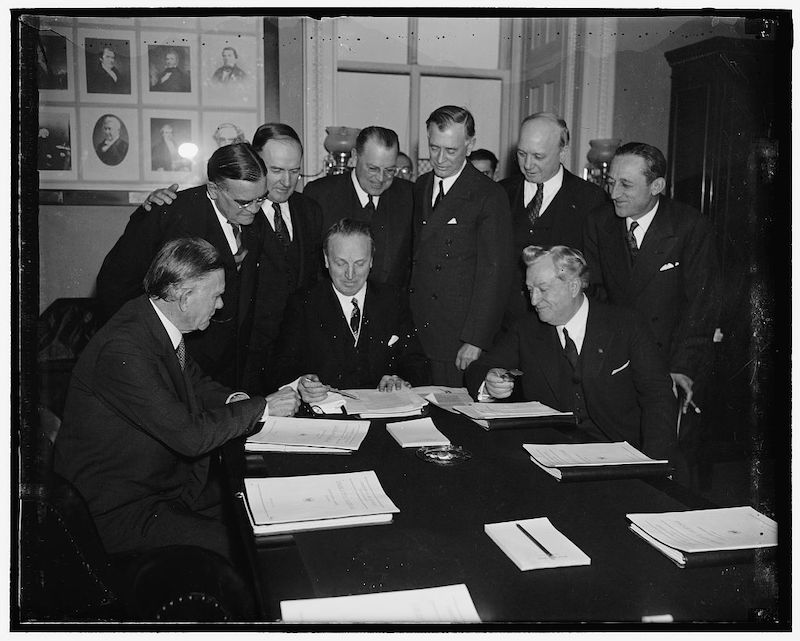
No related resources
Introduction
President Roosevelt’s plan to “pack the Supreme Court” (contained in the Judicial Procedures Reform Bill) faced immediate opposition in Congress both because of concerns about its constitutionality and because Roosevelt had failed to consult members of Congress before announcing the plan. In the House of Representatives, the Democratic chair of the Judiciary Committee, Hatton W. Summers, believed the proposal was unconstitutional and essentially blocked its consideration, requiring Roosevelt to have it taken up in the Senate. There its opponents engaged in lengthy Judiciary Committee hearings and ultimately released the following blistering report. It stands as one of the most vigorous defenses of judicial independence in American history.
The committee essentially accused Roosevelt of dishonesty by claiming that he wanted to make the Court more efficient and bring “new blood” to it. Rather, Roosevelt wanted to “change the decisions of the Court” and make it subordinate to the president and Congress. The committee considered this a dangerous attack on judicial independence. While the size of the Court had changed throughout America’s history, its size had never been changed in order to change how it interpreted the Constitution
Senate, 75th Congress, 1st session, Report no. 711, https://reason.com/wp-content/uploads/2020/10/Senate-Judiciary-Committee-Report-on-1937-Court-Packing-Legislation.pdf.
. . .The committee recommends that the measure be rejected for the following primary reasons:
I. The bill does not accomplish any one of the objectives for which it was originally offered.
II. It applies force to the judiciary and in its initial and ultimate effect would undermine the independence of the courts.
III. It violates all precedents in the history of our government and would in itself be a dangerous precedent for the future.
IV. The theory of the bill is in direct violation of the spirit of the American Constitution, and its employment would permit alteration of the Constitution without the people’s consent or approval; it undermines the protection our constitutional system gives to minorities and is subversive of the rights of individuals.
V. It tends to centralize the federal district judiciary by the power of assigning judges from one district to another at will
VI. It tends to expand political control over the judicial department by adding to the powers of the legislative and executive departments respecting the judiciary. . . .
BILL FAILS OF ITS PURPOSE
In the first place, as already pointed out, the bill does not provide for any increase of personnel unless judges of retirement age fail to resign or retire. Whether or not there is to be an increase of the number of judges, and the extent of the increase if there is to be one, is dependent wholly upon the judges themselves and not at all upon the accumulation of litigation in any court. To state it another way the increase of work in any district or circuit, but in relation to the age of the judges and their unwillingness to retire. . . .
THE BILL APPLIES FORCE TO THE JUDICIARY
Those of us who hold office in this government, however humble or exalted it may be, are creatures of the Constitution. To it we owe all the power and authority we possess. Outside of it we have none. We are bound by it in every official act.
We know that this instrument, without which we would not be able to call ourselves presidents, judges, or legislators, was carefully planned and deliberately framed to establish three coordinate branches of government, every one of them to be independent of the others. For the protection of the people, for the preservation of the rights of the individual, for the maintenance of the liberties of minorities, for maintaining the checks and balances of our dual system, the three branches of the government were so constituted that the independent expression of honest difference of opinion could never be restrained in the people’s servants and no one branch could overawe or subjugate the others. That is the American system. It is immeasurably more important, immeasurably more sacred to the people of America, indeed, to the people of all the world, than the immediate adoption of any legislation however beneficial. . . .
OBJECT OF PLAN ACKNOWLEDGED
The president tells us in his address to the nation of March 9:1
When the Congress has sought to stabilize national agriculture, to improve the conditions of labor, to safeguard business against unfair competition, to protect our national resources, and in many other ways to serve our clearly national needs, the majority of the Court has been assuming the power to pass on the wisdom of these acts of the Congress and to approve or disapprove the public policy written into these laws. . . .
We have, therefore, reached the point as a nation where we must take action to save the Constitution from the Court and the Court from itself. We must find a way to take an appeal from the Supreme Court to the Constitution itself. We want a Supreme Court which will do justice under the Constitution—not over it. In our courts we want a government of laws and not of men.
These words constitute a charge that the Supreme Court has exceeded the boundaries of its jurisdiction and invaded the field reserved by the Constitution to the legislative branch of the government. At best the accusation is opinion only. It is not the conclusion of judicial process.
Here is the frank acknowledgment that neither speed nor “new blood” in the judiciary is the object of this legislation, but a change in the decisions of the Court—a subordination of the views of the judges to the views of the executive and legislative, a change to be brought about by forcing certain judges off the bench or increasing their number.
Let us, for the purpose of the argument, grant that the Court has been wrong, wrong not only in that it has rendered mistaken opinions but wrong in the far more serious sense that it has substituted its will for the congressional will in the matter of legislation. May we nevertheless safely punish the Court?
Today it may be the Court which is charged with forgetting its constitutional duties. Tomorrow it may be the Congress. The next day it may be the Executive. If we yield to temptation now to lay the lash upon the Court, we are only teaching others how to apply it to ourselves and to the people when the occasion seems to warrant. Manifestly, if we may force the hand of the Court to secure our interpretation of the Constitution, then some succeeding Congress may repeat the process to secure another and a different interpretation and one which may not sound so pleasant in our ears as that for which we now contend.
There is a remedy for usurpation or other judicial wrongdoing. If this bill be supported by the toilers of this country upon the ground that they want a Court which will sustain legislation limiting hours and providing minimum wages, they must remember that the procedure employed in the bill could be used in another administration to lengthen hours and to decrease wages. If farmers want agricultural relief and favor this bill upon the ground that it gives them a Court which will sustain legislation in their favor, they must remember that the procedure employed might some day be used to deprive them of every vestige of a farm relief.
When members of the Court usurp legislative powers or attempt to exercise political power, they lay themselves open to the charge of having lapsed from that “good behavior” which determines the period of their official life. But, if you say, the process of impeachment is difficult and uncertain, the answer is, the people made it so when they framed the Constitution. It is not for us, the servants of the people, the instruments of the Constitution, to find a more easy way to do that which our masters made difficult.
But if the fault of the judges is not so grievous as to warrant impeachment, if their offense is merely that they have grown old, and we feel, therefore, that there should be a “constant infusion of new blood,” then obviously the way to achieve that result is by constitutional amendment fixing definite terms for the members of the judiciary or making mandatory their retirement at a given age. Such a provision would indeed provide for the constant infusion of new blood, not only now but at all times in the future. The plan before us is but a temporary expedient which operates once and then never again, leaving the Court as permanently expanded to become once more a court of old men, gradually year by year falling behind the times. . . .
A PRECEDENT OF LOYALTY TO THE CONSTITUTION
We are told that a reactionary oligarchy defies the will of the majority, that this is a bill to “unpack” the Court and give effect to the desires of the majority; that is to say, a bill to increase the number of justices for the express
purpose of neutralizing the views of some of the present members. In justification we are told, but without authority, by those who would rationalize this program, that Congress was given the power to determine the size of the Court so that the legislative branch would be able to impose its will upon the judiciary. This amounts to nothing more than the declaration that when the Court stands in the way of a legislative enactment, the Congress may reverse the ruling by enlarging the Court. When such a principle is adopted, our constitutional system is overthrown! . . .
AN INDEPENDENT JUDICIARY ESSENTIAL
It is essential to the continuance of our constitutional democracy that the judiciary be completely independent of both the executive and legislative branches of the government, and we assert that independent courts are the last safeguard of the citizen, where his rights, reserved to him by the express and implied provisions of the Constitution, come in conflict with the power of governmental agencies. We assert that the language of John Marshall, then in his 76th year, in the Virginia Convention (1829–31), was and is prophetic:
Advert, sir, to the duties of a judge. He has to pass between the government and the man whom the government is prosecuting; between the most powerful individual in the community and the poorest and more unpopular. It is of the last importance that in the exercise of these duties he should observe the utmost fairness. Need I express the necessity of this? Does not every man feel that his own personal security and the security of his property depends on that fairness? The judicial department comes home in its effect to every man’s fireside; it passes on his property, his reputation, his life, his all. Is it not, to the last degree, important that he should be rendered perfectly and completely independent, with nothing to influence or control him but God and his conscience?
The condition of the world abroad must of necessity cause us to hesitate at this time and to refuse to enact any law that would impair the independence of or destroy the people’s confidence in an independent judicial branch of our government. We unhesitatingly assert that any effort looking to the impairment of an independent judiciary of necessity operates toward centralization of power in the other branches of a tripartite form of government. We declare for the continuance and perpetuation of government and rule by law, as distinguished from government and rule by men, and in this we are but reasserting the principles basic to the Constitution of the United States. The converse of this would lead to and in fact accomplish the destruction of our form of government, where the written Constitution with its history, its spirit, and its long line of judicial interpretation and construction, is looked to and relied upon by millions of our people. Reduction of the degree of the supremacy of law means an increasing enlargement of the degree of personal government.
Personal government, or government by an individual, means autocratic dominance, by whatever name it may be designated. Autocratic dominance was the very thing against which the American Colonies revolted, and to prevent which the Constitution was in every particular framed. . . .
If, under the “hydraulic pressure” of our present need for economic justice, we destroy the system under which our people have progressed to a higher degree of justice and prosperity than that ever enjoyed by any other people in all the history of the human race, then we shall destroy not only all opportunity for further advance but everything we have thus far achieved. . . .
SUMMARY
We recommend the rejection of this bill as a needless, futile, and utterly dangerous abandonment of constitutional principle.
It was presented to the Congress in a most intricate form and for reasons that obscured its real purpose
It would not banish age from the bench nor abolish divided decisions.
It would not affect the power of any court to hold laws unconstitutional nor withdraw from any judge the authority to issue injunctions.
It would not reduce the expense of litigation nor speed the decision of cases.
It is a proposal without precedent and without justification.
It would subjugate the courts to the will of Congress and the president and thereby destroy the independence of the judiciary, the only certain shield of individual rights.
It contains the germ of a system of centralized administration of law that would enable an executive so minded to send his judges into every judicial district in the land to sit in judgment on controversies between the government and the citizen.
It points the way to the evasion of the Constitution and establishes the method whereby the people may be deprived of their right to pass upon all amendments of the fundamental law.
It stands now before the country, acknowledged by its proponents as a plan to force judicial interpretation of the Constitution, a proposal that violates every sacred tradition of American democracy.
Under the form of the Constitution it seeks to do that which is unconstitutional.
Its ultimate operation would be to make this government one of men rather than one of law, and its practical operation would be to make the Constitution what the executive or legislative branches of the government choose to say it is—an interpretation to be changed with each change of administration.
It is a measure which should be so emphatically rejected that its parallel will never again be presented to the free representatives of the free people of America.
- 1. Fireside Chat on the Reorganization of the Judiciary
Address on Constitution Day
September 17, 1937
Conversation-based seminars for collegial PD, one-day and multi-day seminars, graduate credit seminars (MA degree), online and in-person.
